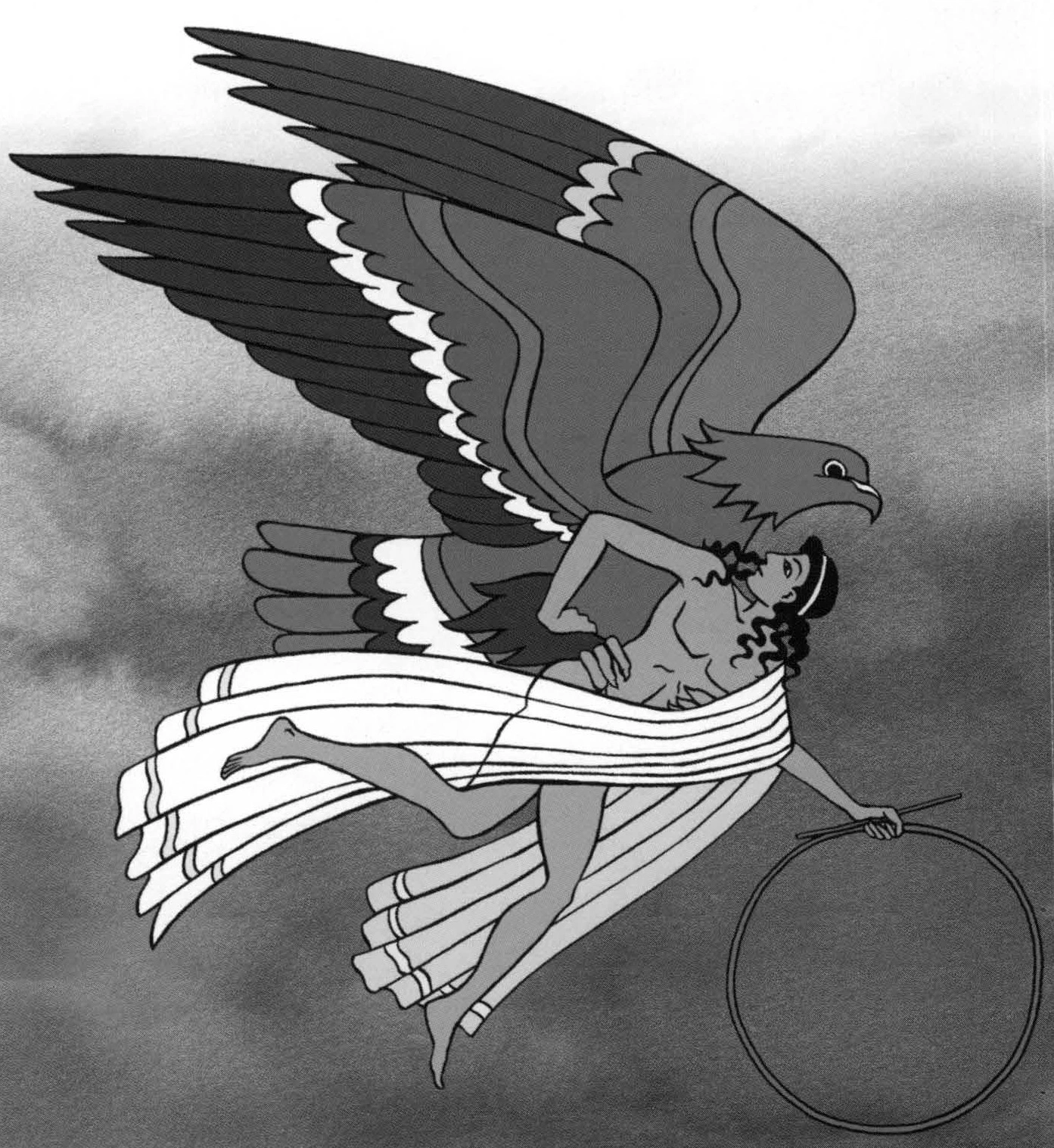From Bulfinch's Mythology: Hebe and Ganymede - anthology.
Publié le 12/05/2013

Extrait du document

From Bulfinch's Mythology: Hebe and Ganymede - anthology. The ancient gods had a sumptuous existence, living on ambrosia and nectar served to them by the lovely goddess Hebe. When Hebe moved on, Jupiter (Zeus in Greek mythology) needed to replace her. A beautiful young prince named Ganymede was Jupiter's choice. There are several variations on how Ganymede was captured. In this one, related by the 19th century American writer Thomas Bulfinch, Jupiter disguised himself as an eagle and carried Ganymede away. From Bulfinch's Mythology: Hebe and Ganymede By Thomas Bulfinch Hebe, the daughter of Juno, and goddess of youth, was cup-bearer to the gods. The usual story is that she resigned her office on becoming the wife of Hercules. But there is another statement which our countryman Crawford, the sculptor, has adopted in his group of Hebe and Ganymede, now in the Athenæum gallery. According to this, Hebe was dismissed from her office in consequence of a fall which she met with one day when in attendance on the gods. Her successor was Ganymede, a Trojan boy, whom Jupiter, in the disguise of an eagle, seized and carried off from the midst of his playfellows on Mount Ida, bore up to heaven, and installed in the vacant place. Tennyson[Alfred Tennyson, 19th century Victorian-era English poet], in his 'Palace of Art,' describes among the decorations on the walls a picture representing this legend: 'There, too, flushed Ganymede, his rosy thigh Half buried in the eagle's down, Sole as a flying star shot through the sky Above the pillared town.' And in Shelley's [Percy Bysshe Shelley, early 19th century English poet] 'Prometheus' Jupiter calls to his cup-bearer thus: 'Pour forth heaven's wine, Idæan Ganymede, And let it fill the Dædal cups like fire.' The beautiful legend of the 'Choice of Hercules' may be found in the 'Tatler,' No. 97. Source: Bulfinch, Thomas. Bulfinch's Mythology: The Age of Fable, The Age of Chivalry, Legends of Charlemagne. New York: Random House, 1934.
Liens utiles
- From Bulfinch's Mythology: Venus and Adonis - anthology.
- From Bulfinch's Mythology: Hero and Leander - anthology.
- From Bulfinch's Mythology: Perseus and Medusa - anthology.
- From Bulfinch's Mythology: Prometheus and Pandora - anthology.
- From Bulfinch's Mythology: Meleager and Atalanta - anthology.
